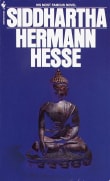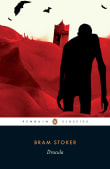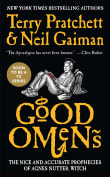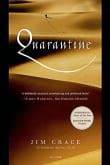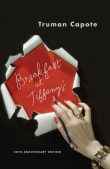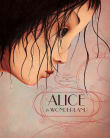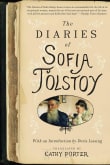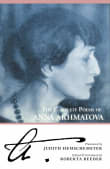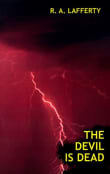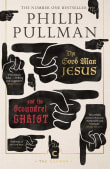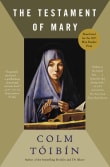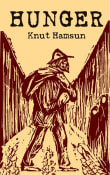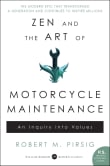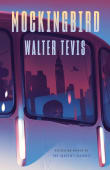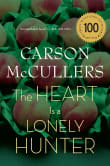The Master and Margarita
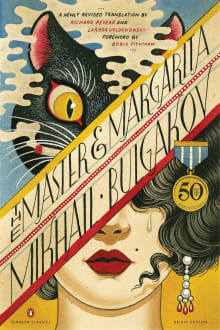
Book description
'Bulgakov is one of the greatest Russian writers, perhaps the greatest' Independent
Written in secret during the darkest days of Stalin's reign, The Master and Margarita became an overnight literary phenomenon when it was finally published it, signalling artistic freedom for Russians everywhere. Bulgakov's carnivalesque satire of Soviet life describes…
Why read it?
19 authors picked The Master and Margarita as one of their favorite books. Why do they recommend it?

A treasure. I first read this book in my 20s, which was -- um -- a while ago. I liked it a lot then, chiefly because of the sly, hilarious opening plot in which the Devil pays a chaotic visit to 1930s Moscow. Bulgakov's ability to write, in total deadpan, about the arrogance of wrong-headed people is just plain brilliant.
Why read it again, many years later? Partly because our son told me to. But also because the secondary and tertiary plots are brilliant and beautiful, too. Bulgakov has a lot to say about creativity, and the fragility of artists,…

It is known to be a masterpiece and it truly is. I cannot recommend highly enough.

If I ever have to write a book to get past the censors, this book will be my model. Who knew that a mordant critique of a corrupt state could be so elegant, even whimsical?
The barbs are so oblique that the censor has a hard time finding something to pick on or even noticing it, and yet they’re unmistakable to anyone living in a society with even a passing resemblance to Stalin’s Russia—and after reading The Master and Margarita, I see those resemblances in every organization and every regime.
From Pedro's list on satires that changed our view of the world.
If you love The Master and Margarita...

It was thought-provoking and also informative as I learned a lot about Russia. It encouraged me to look things up. It begins with two atheists talking about the non-existence of Jesus and dismissing Immanuel Kant's "proofs" of the existence of God.
Along comes a mysterious stranger who is delighted by their atheism but kindly points out that, after having had breakfast with Kant and having been witness to Jesus' condemnation by Pontius Pilate, Jesus is as real as the devil. Proof of this is then provided with a macabre prophecy, which is fulfilled in intimate detail shortly. We soon learn…
From Lynda's list on discovering new worlds beyond our expectations.

This is another example of the gothic but Bulgakov infuses it with the political as it takes place in in Soviet Russia. Like any good gothic novel, there is much to behold beyond the fantastic or supernatural. Unlike horror, whose purpose is to frighten, gothic uses the fantastic to explore social, and often, political themes, as is the case with Bulgakov.
This is a wonderful novel where the devil and his entourage visit the Soviet Union to challenge its citizens about faith and belief (or, as was the case, non-belief).
From Mike's list on speculative fiction.

I went back to this classic recently after a gap of many years and loved it even more. This is a serious philosophical novel that is also a grimly funny satire on Stalinist Russia. It was published long after the author's death.
The devil, posing as a stage magician, comes to Moscow, accompanied by various demonic minions, and proves to be more dangerous than any politician. People don’t believe in him, which leaves him free to create havoc, especially among the literary elite.
The mayhem includes such gems as bureaucrats being transformed into empty suits and the staff of the…
If you love Mikhail Bulgakov...

Bulgakov wrote this book in the Soviet Union under Stalin. Mystery, magic, satanic forces, and heavenly interventions, this book is a love story where anything can and does happen. It is a spellbinding read.
I found it funny and frightening, philosophical and fantastic. I couldn’t put it down!

People who read The Master and Margarita will tell you that it is one of the greatest books they have ever read, but few can tell you why. It defies description. It is truly unique.
It opens on a blistering hot day in Moscow, a paradox in itself. The devil, seemingly out of Goethe’s Faust, is on a visit to the town. He and his strange entourage would be laughable, if they were not so lethal. Only the madness of Stalin’s paranoid Communism could have created such a story.
Bulgakov has an uncanny way of investing even the most unlikely…
From Robert's list on supernatural challenging the way we see the world.

The Master and Margarita by Bulgakov is one of my favorite pieces of Russian writing.
Encapsulating the, often deadly, absurdity of life during the 50’s Soviet system and how it is not less than the devil’s musings and doings, the story still, excellently evokes notions of hope, love, comedy, tragedy, and learning within this setting.
What still remains with me is the vivid richness in description and characters. In my words, Bulgakov and specifically The Master and Margarita are to literature what Tarantino is to cinema and films.
From Robert's list on understanding life.

An undeniably genius work of fiction.
I have read it over and over again and every time, I rediscover the book and uncover new meanings, as if I have never read this book before.
I cannot say that I agree with every value and principle expressed in the book, but I absolutely love the way Bulgakov mashed up light and darkness, goodness and evil, wisdom and insanity in a whirlwind of colours, making you question the “badness” of one and the “goodness” of the other.
It is a liberating take on the “dark side” and hence it closes the list.
From Kristina's list on personal growth and transformation.
Want books like The Master and Margarita?
Our community of 12,000+ authors has personally recommended 100 books like The Master and Margarita.


